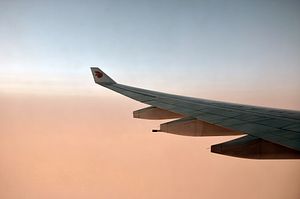This week, China announced a new alert for its citizens that may travel to the United States. A release carried by the state-run Xinhua news agency noted that given “the frequent occurrence of shootings, robberies and theft in the United States,” Chinese citizens would be advised to “fully assess the risks of traveling there.” The alert is valid until the end of the year.
On first glance, the alert bore a resemblance to the reports on human rights in the United States that China has released in recent years as a response to Washington’s own assessments of human rights in China. Given the release of the alert on June 4 — the 30th anniversary of the Tiananmen Square massacre in 1989 — perhaps this was intentional.
The alert also comes as reports of Chinese travelers being interrogated at U.S. ports of entry have grown. In April 2019, prominent Chinese scholar Zhu Feng was blocked from entry. Other scholars and prominent Chinese have also either voluntarily restricted their travel to the United States or have faced difficulties in procuring visas.
Beyond this, however, the travel alert may mark the beginnings of further asymmetrical retaliation by China for the Trump administration’s refusal to back down in its trade war on Beijing. A travel alert, after all, should suppress tourism from China to the United States and nonessential business travel in the short-run.
The Chinese public may be more receptive to this sort of an alert particularly after May’s events in the ongoing economic warfare between the two countries. For instance, after the administration’s action against tech giant Huawei last month, nationalist Chinese netizens have rallied behind the company, which is seen as the crown jewel of China’s global high-tech competitiveness.
But there’s precedent to how the Chinese Communist Party leadership has used restrictions on tourism as a tool of geoeconomic leverage in the past. The most serious recent case was seen in how the Chinese state used restrictions on tourism as part of the unofficial sanctions on South Korea after Seoul assented to the deployment of the U.S. Terminal High Altitude Area Defense missile defense system in 2016.
Over the course of months, Chinese regulators took multiple steps to choke off Chinese tourist revenue in South Korea, where mainland Chinese accounted for some 47 percent of all tourists and 70 percent of duty free shop sales in 2016. A March 2017 decree from the Chinese National Tourism Administration also barred China-based tour agencies from offering package tours in South Korea. Official South Korean statistics showed a two-third drop in total Chinese tourist volume to South Korea by the summer of 2017, after the THAAD launchers had been delivered to South Korea.
China’s response to South Korea extended beyond the tourism sector and similar tactics may not be useful in the United States as a serious source of economic leverage. South Korea’s total economic exposure to China is much greater and the tourism sector especially so.
Beijing appears to favor the use of tourism restrictions in other places too. An effort to pressure Taiwan’s Democratic Progressive Party government by making cross-strait tourism more difficult is another example; Taipei weathered the decreased by increasing tourism from other parts of Asia.
Given the stakes in the U.S.-China economic competition, perhaps no asymmetric tool is too small for Beijing, which has made it a rule-of-thumb so far to issue tariff measures of its own strictly in retaliation to U.S. tariff escalation. Nontariff barriers and other means of economic warfare, thus, become a more favorable tool of statecraft.
In the coming weeks and months, we may see further indicators of the Chinese government taking more serious measures to choke off tourism if the bilateral relationship fails to improve. For now, however, the travel alert may just be part of the old Communist Party playbook on human rights.

































